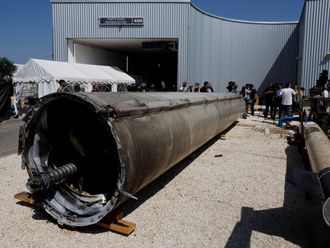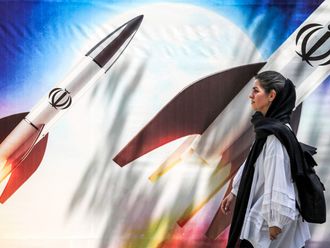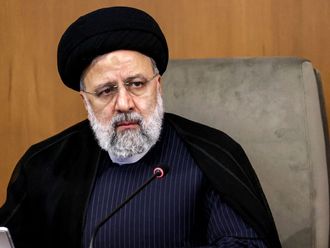Cairo: Having suffered oppression for almost three decades under former president Hosni Mubarak, Salafists are making a strong yet controversial comeback to the Egyptian political scene, raising fears that the predominantly Muslim country is moving towards religious extremism.
Earlier this week, Mufti of the Republic Ali Jumaa, Egypt’s leading Muslim official, had to devote a sermon to denounce the destruction of shrines allegedy carried out by Salafists or Muslim fundamentalists in several areas of the country.
“Calls that the shrines of the saints are against Islam stir up sedition among Muslims,” he said on official TV, denying that visiting such tombs is an act of polytheism.
“Some ignorant militants previously called for the destruction of the Prophet Muhammad’s (PBUH) tombs and those of his companions,” added Jumma, almost in tears.
Prosecutors in Qaliubia, north of Cairo, are questioning Salafists, suspected of destroying six shrines annexed to mosques. Meanwhile, local people and followers of Muslim Sufi orders have set up vigilante groups in the coastal city of Alexandria to protect popular shrines after reports that the Salafists had planned their destruction.
“Prime Minister Essam Sharaf and (the ruling) military council should intervene in order to stop this Salafist invasion,” Abdul Khaleq Al Shabrawi, the head of a Sufi order, told Gulf News.
“If the situation continues like this, such militant groups will become armed militias and turn Egypt into a new Lebanon,” he added. “The way the Salafists behave lends support to the counter-revolution that followed the ouster of Mubarak as it will result in chaos and sedition among Muslims.”
Late last month, Salafists in the Upper Egyptian city of Qena cut off the ear of a Coptic Christian for allegedly getting involved in immoral acts. They were also accused of torching his apartment and car. Days earlier, Shaikh Hussain Yaqoub, a famous Salafist cleric, raised many eyebrows in the country when he described the approval of constitutional changes in a referendum as a victory for Islam and likened the vote to a “ghazwa” or an Islamic battle.
In an apparent bid to allay fears about the emerging power of Salafists, the ruling military council said on Monday that the military would not “allow any extremist force to dominate” the country. “Egypt will not be ruled by another Khomeini,” added the council, referring to the spiritual leader of Iran’s Islamic Revolution in 1979.
On their part, Salafist groups have blamed the remnants of Mubarak’s party for vandalising shrines and instigating a campaign in the media to “tarnish” their image.
“Any crime these days is automatically blamed on Salafists,” said Syed Abdul Azeem, a senior Salafist. “Although we believe that no shrines should be built inside mosques and that prayers should be offered to God only, we never resort to violence,” he added. “The media should verify their sources before carrying baseless reports.”











